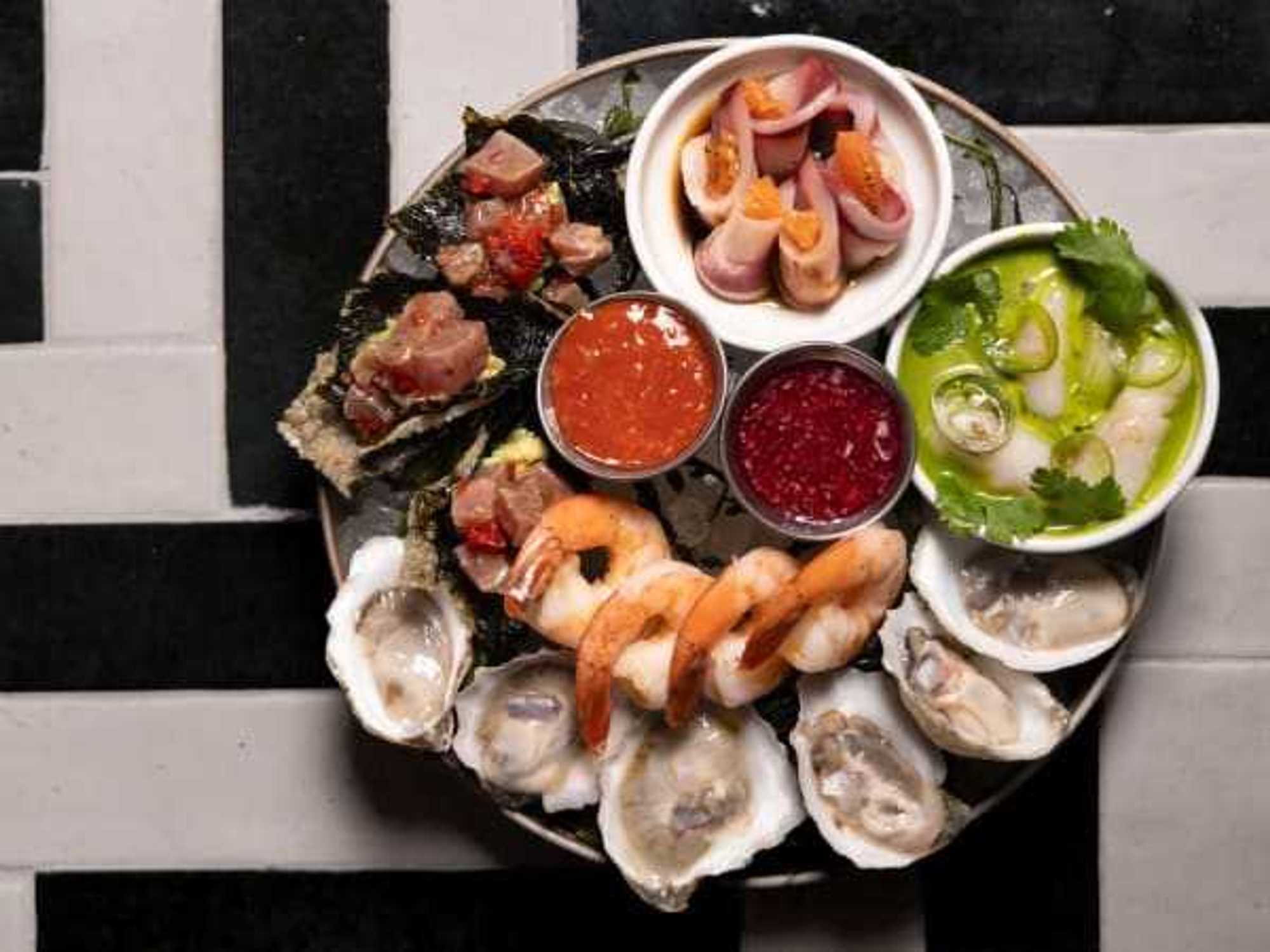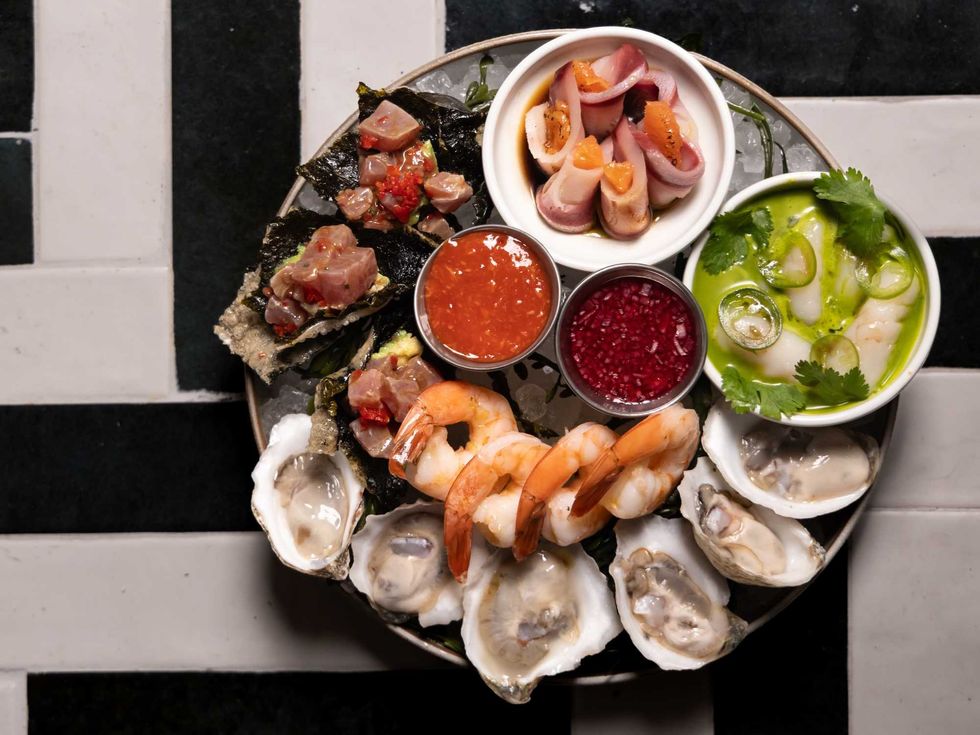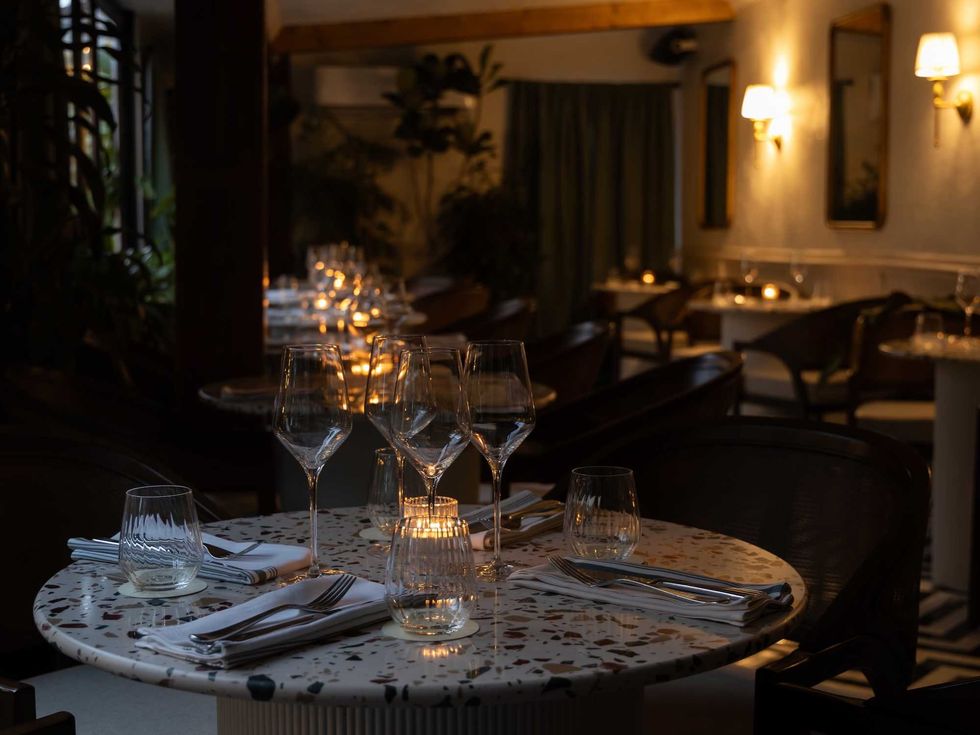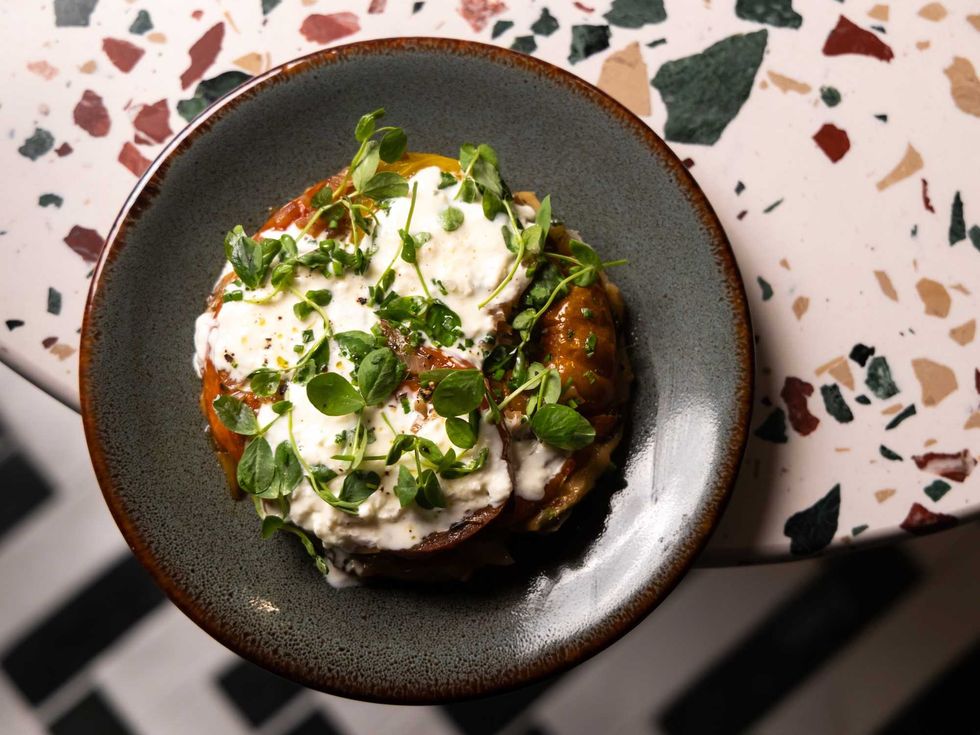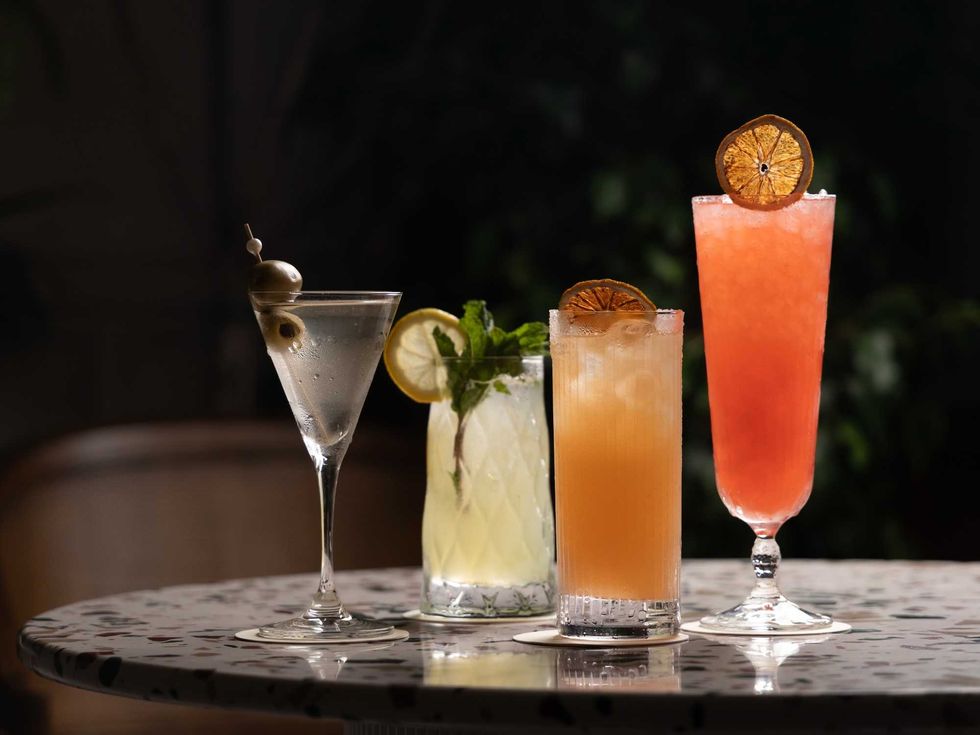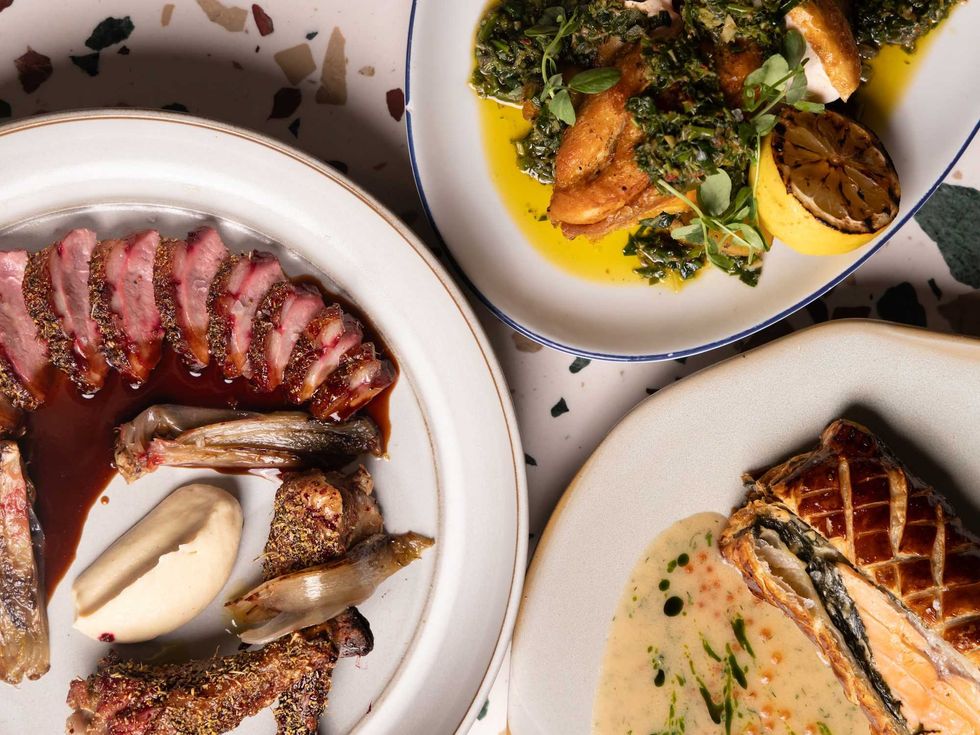wine guy wednesday
Wine Guy Chris Shepherd spotlights an acclaimed West Coast vineyard every Houstonian should know

Jasmine Hirsch is the general manager and winemaker for Hirsch Vineyards.
Editor's note: Long before Chris Shepherd became a James Beard Award-winning chef, he developed enough of a passion for wine to work at Brennan's of Houston as a sommelier. He maintains that interest to this day. When Chris expressed interest in writing about wine-related topics for CultureMap, we said yes.
In this week's column, he talks to his friend Jasmine Hirsch about Hirsch Vineyards, a California winery that has supported the Southern Smoke Festival from the beginning. Take it away, Chris.
-----
I want to talk about a special place that you all should know. When you think of world-class vineyards, people think of sites in Burgundy, Bordeaux, Northern Italy. Hirsch Vineyards should be on this list.
David Hirsch purchased land on the true Sonoma Coast in 1978 and began growing grapes to heal the land after years of overgrazing and deforestation. Once the vineyards were planted, this became one of the best sites for Pinot Noir and Chardonnay. Some of the sought after producers bought their grapes — wineries like Littorai, Williams Selyem, Kistler and Failla. In 2002, David started making his own wines. His daughter Jasmine returned home to Sonoma in 2008 to work with the family business—first in sales and marketing, then general manager, and became wine maker in 2019.
I’ve known Jasmine since my Catalan days, and we’ve become great friends. She was just in Houston last weekend pouring her wines at the Southern Smoke Festival where we inducted her into the inaugural class of Southern Smoke’s Hall of Flame — people who have supported the organization and its mission since day one.
Just this month, Jasmine was included in a Travel + Leisure article highlighting California’s new generation of female winemakers, and Hirsch Vineyards was named Winery of the Year by Vinepair. She’s kind of a big deal.
We chatted about her path to becoming a wine maker, what she’s excited about for the future of Hirsch, and what she drinks at home.
Chris Shepherd: You didn’t start out in the family business. You left for 10 years and lived all over the world. Why did you decide to come home?
Jasmine Hirsch: I moved to New York in 2006, and I really thought I wanted to work in private banking. I worked really hard to get this great job, and I hated it almost immediately. I loved the non-work aspects of my life in New York, drinking wine, going to restaurants, meeting people. I became friends with Bernie Sun, who was the wine director for Jean-Georges for years. He knew how much I loved wine and restaurants and did not feel the same about banking.
He told me that I should go home and work for my dad. He said, “Your father is doing something important, and you should help him.”
He was able to point out to me that I had a responsibility, and also in a way, it gave me permission to go home.
When I was a kid, we called the vineyard “the ranch.” It was my favorite place. We lived and went to school in Marin with my mom, but in 5th grade, I spent an entire year living on the ranch with my dad, and I was so happy there.
My dad is a classic entrepreneur — a pioneer with a strong personality, doesn’t want to compromise, wants to do things his way. It was so hard when I started working for him! I thought I knew everything, and I had not earned that yet. After a few years, I knew I wanted to take care of this place. My dad wasn’t giving me space, so we fought a lot. It’s a very vulnerable thing to be in business with your family. And you really need to build trust with your business partner. After his accident [he was injured in an accident at the winery in 2014], it was like a master class in trust. He was forced to let go and had to rely on other people.
What is fate? I don’t know but I think a lot of us have these karmic battles or dances that we have to go through in order to find out way to feel right about ourselves and the people we love.
CS: You’ve really stepped into a major role: wine maker. The brand has always been legendary. You’ve just been honored as part of the next generation of female winemakers. That’s pretty special, and that must make your dad proud.
JH: It’s funny because we never talk about that stuff — he and I. It’s meaningful to have your work recognized from the outside. The media attention and the love from our customers enables us to do the work we do, but the important part is the the work we do when nobody’s looking.
There is a deeper reason why we do what we do. It’s to take care of the land.
CS: Your goal is to be a steward of the land.
JH: It was the reason my father planted vineyards. He bought the property in 1978 and realized it needed a tremendous amount of work to bring it back to some kind of ecological health. It was a rainforest, and our land was clear cut long before we bought the land and then it was overgrazed.
My dad needed some sort of cash crop so he could bring the land back, and he looked at redwoods, mushrooms, and he settled on wine grapes.
CS: Imagine how different your life would be if your dad chose mushrooms!
JH: You would have to have a separate section at Southern Smoke just for mushrooms!
Around 2005, my dad started to look around for a different way of farming and became interested in biodynamics. He was interested in it as a framework for how to manage the entire ranch. Our consultant who helped us transition into biodynamics said there is no such thing as a biodynamic vineyard. It’s a biodynamic farm. It encompasses the whole place.
The whole reason my dad built the winery was to produce income so we could heal the land. And I realized, what could be a better purpose than to take care of the land and your people? When we have a purpose in our work that’s bigger than accolades or money, our work is so much more generous to our hearts and spirits.
I’m very lucky that my father gently pointed out to me that there was a bigger goal in this business than just making good wine.
CS: What’s your favorite Hirsch vineyard site? Which one is the most challenging?
JH: The perfect vineyard is Block 8. It achieves its own natural balance in the vineyard and in the cellar. It’s a remarkable vineyard in that way. It has a soil that we don’t have anywhere else at Hirsch.
Block 7 is the heart of the West Ridge has always been my favorite vineyard, and West Ridge has often been my favorite wine. The wines are charming and effortless and very delicate, and yet it’s a very challenging vineyard to farm. It’s a bit of a heartbreaker vineyard because the vines do struggle. As my dad loves to say, every problem is an opportunity. Change your perspective.
CS: What do you see for the future?
JH: Amongst the wines, Raschen Ridge. It’s been interesting because we have been impressed by that section of the vineyard for a long time. We wanted to make sure that specialness wasn’t a flash in the pan but we finally bottled it on its own when the vineyard was 12 years old. Since taking over the winemaking and working with Michael [Jasmine’s partner Michael Cruse is the founder of Ultramarine and Cruse Wine Co] — he comes from outside and is a pragmatist. When he says Raschen Ridge can be better than Block 8, your ears perk up. That’s what I’m excited about.
And we’re planting new vineyards to try new things—new plantings with the goal of climate resilience.
CS: You and Michael are sitting back after a long week. What are you going to open?
JH: When we want to treat ourselves, we open old Barolo. Or I have a gin and tonic, and he’ll have a high ball.
CS: What’s your favorite restaurant in Houston?
JH: Catalan! Come back!
CS: How can people find your wines?
JH: You can go to our website and buy wines. There are always a few wines on our website to purchase. Or you can sign up for the mailing list, and we’ll send you a link to join the wine club.
----
Contact our Wine Guy via email at chris@chrisshepherdconcepts.com.
Chris Shepherd won a James Beard Award for Best Chef: Southwest in 2014. He recently parted ways with Underbelly Hospitality, a restaurant group that currently operates four Houston restaurants: Wild Oats, GJ Tavern, Underbelly Burger, and Georgia James. The Southern Smoke Foundation, a non-profit he co-founded with his wife Lindsey Brown, has distributed more than $10 million to hospitality workers in crisis through its Emergency Relief Fund.
